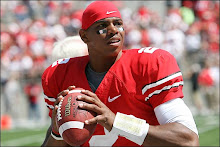
Our first artifact in this unit included a handout with the lyrics of the song “War,” by Edwin Starr. The artifact described Starr as “the guy with the coolest voice ever.” I, like everyone else on the planet, have heard “War” many times on the radio and in movies. But I wanted to know more about the song: who wrote it, when was it written, and how did people react to such a hard-hitting, controversial song?
First written in 1969 by popular Motown songwriter and producer Norman Whitfield, “War” was a song of rebellion and protest against the United State’s seemingly useless war in Vietnam. It was not originally written for Starr. Instead, the song was created for the Temptations, one of Motown’s most popular singing groups. “War” was included on the album Psychedelic Shack, along with seven other songs. The anti-war tune was an instant hit, and fans clamored for it to be released as a single.
Whitfield fought to get Motown to listen to its fans and release the Temptations song as a single. But Motown said no. They worried that “War” was so hard-hitting and controversial, it could endanger the success of one of its most popular, profitable bands. Whitfield, however, kept fighting. Finally, another Motown singer, Edwin Starr, heard about the argument, and came up with an idea. He offered to re-record the song, giving Motown a less risky solution. At the time, Starr was a little-known black singer with a rough, vigorous singing style. The Temptations’ version of “War” had been done in a laid back, acoustic style. But Starr changed the song’s mood completely, turning it into a hard-driving, passionate single that boldly captured the nation’s angst about the futility and stupidity of war.
Starr turned Whitfield’s Vietnam protest song into an immediate smash hit. “War” reached number one in the United States in 1970, and boosted Starr’s career to a new level. The song resonated with millions of Americans who felt that the war in Vietnam was a waste of time, and that young men were getting killed over nothing. In the same year that the National Guard at Kent State University shot and killed four war protesters, Starr and Whitfield gave anti-war activists a renewed passion to fight for their cause.
The determination and persistence that Whitfield and Starr showed in re-recording “War” contrasts sharply with the story of the young man who runs away from the U.S. to Canada in “On the Rainy River.” The narrator, Tim O’Brien, holds the same convictions about Vietnam that Whitfield and Starr did in their song. But he doesn’t act on them because he doesn’t have the courage to risk the backlash from patriots like parents and friends at home. His dilemma is a lot like Motown’s: what was he willing to risk, and what would he lose, by voicing an unpopular view about war? What would be the cost of acting on his emotions, and leaving the U.S. to avoid the draft?
O’Brien describes his angst and torment in trying to resolve this as he writes a letter to his parents and confesses, “I try to explain some of my feelings, but there aren’t enough words…” He talks about how “Intellect had come up against emotion…” and he confesses to being in “desperate trouble…I couldn’t talk about it. The wrong word—or even the right word—and I would’ve disappeared.”
In the end, O’Brien doesn’t have the courage to leave the security of the life he’s always known for the sake of his convictions. And that, perhaps, is the key to the power of Starr and Whitfield’s song. Their music captured what words and logic in that Vietnam era never could. Their re-released single sang the story of the torment and passion of Tim O’Brien.


1 comment:
SAY IT AGAIN, BROTHA LINC!!
Post a Comment